In last week’s edition, we discussed the advantages of thinking about Christian disciples as ‘apprentices’—that is, as the kind of learners who devote themselves to learn a new knowledge-based practice from their Master, the Lord Jesus Christ.
In this week’s edition, we’re going to bring the idea of ‘apprenticeship’ to bear on the question of how to read and apply the Bible to our lives. And (eventually) we will cycle back briefly to the issue of church and ‘worship’ that started this train of thought running.
Two things, though, before we go further. Firstly, I do recognize that the ‘worship’ issue is not the most pressing question in the world, especially at this moment. And to be truthful, it doesn’t quite get my juices flowing as it once did. But it does serve as a convenient illustration for a larger and more important point that is the real subject of this week’s post.
And secondly, the larger issue (of how to apply the Bible) is indeed a very large issue, and I have struggled to keep the length of this week’s edition down, without really succeeding. It’s a longer than usual Payneful Truth this time around. Happily, though, I am on holiday next week, and won’t be posting anything next Monday—so you have two weeks to chew your way through the exciting adventure that is …
Apprenticeship to Scripture
Being ‘biblical’ in our thinking and action is a bit like ‘healthy eating’. Most Christians would like to think that they are at least trying, but it’s not always clear what qualifies.
For example, is a practice or concept ‘biblical’ if it fits within the bounds of what the Bible permits, or is at least silent about—or is that too low a bar? Is something only ‘biblical’ if the Bible explicitly commands or positively endorses it in some way? Or is acting in a biblical way more about the theological vibe that you get from putting together the various teachings and themes of Scripture? Or is it some combination of all of these?
How does one start with all the various things that the Bible asserts, teaches, describes or exemplifies, and then conclude (in any particular situation) what would be the good or right or ‘biblical’ thing to do? It’s not always straightforward.
With regard to church and worship—as an illustration—is it perfectly reasonable and biblical to use the category of ‘worship’ as a primary way of describing our gatherings, and in particular the singing we do in our gatherings, as many churches do? (As in, ‘welcome to our service of worship this morning’; or ‘please join us now as we worship our God together in song’.) Or would it be more helpful to avoid ‘worship’ as a primary category for understanding our church gatherings and/or singing, on the basis that the New Testament doesn’t command us to, and in fact hardly ever does so itself? How does the Bible direct us towards an answer on this, or for that matter any, contemporary issue?
Now, in thinking about this question we are about to traverse some deep and complicated waters, in which theologians and ethicists much smarter than me have been thrashing about for centuries. To name-check just three historically massive debates for those who are up on such things: we are in the same waters as the regulative-versus-normative principle discussion at the time of the Reformation; and the hermeneutical debate that has been raging for most of the past hundred years about whether and how ancient texts can speak to modern cultures; and the contemporary controversy within Christian ethics about the place of the Bible as a source of authority in ethical thought.
I have been swimming in these waters quite a lot over the past several years, but I don’t intend to take you with me on a deep academic dive. We will be sticking fairly close to the surface, and I apologise in advance for the various things I will no doubt miss out or treat simplistically in what follows. (For those who do wish to think deeper and further, I’ll mention some things to read below.)
I want to outline two good but inadequate approaches to ‘being biblical’ about our circumstances and decisions, and then suggest a third approach that is very useful, and that (unsurprisingly) has something to do with apprenticeship.
Focus on commands
The first common approach to applying the Bible to our lives is to focus on the Bible’s explicit commands. And this is of course a great and godly thing to do because, after all, to be a disciple (or apprentice!) of Jesus is to learn to keep all his commands (Matt 28:20). Not only are God’s commands as sweet as the honey comb, they are jolly useful in lots of circumstances, especially for people like us. Very often, we don’t have the need, the time or the ability for a complicated thought process about what to do. We need a short, sharp, simple word that simply says, ‘Be angry but do not sin’, ‘Don’t commit adultery’ or ’Flee from idols’.
But as useful as commands are, they have some inadequacies, especially if they are the sum total of our biblical thinking. The first problem is that we still have to figure out whether the command applies in this situation in front of me, and that is not always clear. ‘Flee from idols’ is pretty straightforward if you are faced with an actual statue in a pagan temple, but what if you’re spending too much time obsessing about golf (hard for some of you to imagine I know, but this is an issue that a ‘friend of mine’ struggles with). Is golf becoming an idol to be fled from? How would we know when it has acquired this status? Or is another command more applicable—like ‘do not love the world or things of the world’ or perhaps (more positively), ‘everything created by God is good, and nothing is to be rejected if it is received with thanksgiving’?
The commands themselves don’t help us with this. We still have some thinking and discernment in front of us, and on what basis are we to do this? What if you quote ‘flee from idols’ to me in my golf obsession, but I counter with ‘Whatever is noble and good and excellent, think about these things’? How can we avoid a proof-texting stalemate?
There’s another problem with commands on their own—and that is simply that not every situation is covered by a command specific enough to be useful. Our issue about church and worship is in this category. There is no specific scriptural command to describe our church gatherings as ‘worship services’, nor one forbidding it. In fact, there is no command to call our church services anything. We might conclude that we could therefore describe our church gatherings in any way that we like, but that also doesn’t seem right. If Pastor Jim welcomed the congregation on Sunday to ‘our full-tilt, foot-washing, fashion show of spiritual inspiration’, we might reasonably object that something about the nature and purpose of the gathering is not really being expressed. (Mind you, it would not take too much creativity to proof-text every single expression in Pastor Jim’s description if we wanted to.)
How we describe and frame our church gatherings would seem to be important, but there is no simple biblical command to help us out.
Focus on theology
Here’s where the second common approach comes in. It quite rightly recognizes that the Bible isn’t just commands—among other things, it is also full of theological truths and principles that are the basis for those commands. And so rather than just looking at the end point (the command), we can also soak up the Bible’s theology, its teaching about God and everything, its grand narrative about God’s purposes, and then bring that to bear on the issues in front of us. We can draw out various biblical doctrines and principles, organize them into some kind of coherent order or argument, and thus reason our way to a ‘biblical’ conclusion.
Like the focus on commands, a focus on the themes and categories of theology is excellent, necessary and a great gift from God. It is part of the renewal and transformation of our minds, so that we might discern and live out the good, pleasing and perfect will of our heavenly Father.
And so, with respect to the question of how we should label or frame our church gatherings, we could draw together a number of key biblical themes or doctrines, and draw some conclusions. However, as soon as we start to do this, we come across an often unacknowledged difficulty. There are lots of theological truths or principles to choose from in the Bible, and it’s not only difficult to know exactly which principles are relevant and should be focused on, but what order or priority they should be arranged in. For example, here is a list of various theological truths (each of them perfectly valid), and what we might conclude from them about the nature of the church gathering (in fact, what various people in Christian history have concluded about church):
God is infinitely holy and good, and a consuming fire—therefore the emphasis in our church gatherings should be on transcendence, reverence, worship and awe.
God is love, and love is the chief Christian virtue—therefore church is primarily a ‘love feast’, in which mutual service and affection is paramount.
God is building his church in Jesus Christ—therefore church is mainly about building people up (or edification).
God is a missionary God who welcomes the stranger and the alien—therefore church is actually about the people outside the church, not our own in-house club.
God’s nature and excellence is spiritual, and far beyond our human understanding—therefore church is not so much about intellectual knowledge but is an experience of God’s presence and power.
God is a trinity of eternal relationships — therefore church is really about community and relationship above anything else.
And we could go on.
Which of these excellent theological themes should we employ to understand and frame our church gatherings (not to mention a bunch of others we haven’t mentioned)? And what order or priority should we place them in, with what emphasis? What conclusions should we draw? And how can we avoid doing all this arbitrarily or lopsidedly, particularly to justify whatever it is we want to do anyway?
Thinking theologically about what to do is completely necessary. But it’s not easy. In fact, it exposes our limitations.
And here’s where the idea of ‘apprenticeship’ becomes very useful.
Apprentices to the Bible
As disciples to Jesus Christ, we should approach the word of Christ in Scripture with a posture of apprenticeship—that is, humbly seeking to learn from Christ’s word how to read and apply Christ’s word.
This idea—that Scripture helps us to interpret Scripture—is hardly new. It has long been a Protestant principle that more difficult or obscure passages should be read in light of clearer ones. However, as David Starling notes in his excellent recent book on this subject, the ‘Scripture principle’ does not only operate as a kind of tie-breaker in difficult cases, but is an important Reformed principle of interpretation. He quotes Luther: “I do not want to be boasted of as more learned than all, but Scripture alone to rule: nor for it to be interpreted by my spirit or by any human spirit, but understood through itself and by its own spirit” (cited by Starling, 9-10, emphasis mine).
Starling goes on to build on this idea—that Scripture itself should guide us as we read Scripture; that it teaches us not only what is there but how to read and hold together what is there. Whenever we practice ‘biblical theology’, we are doing this—learning from how the Bible itself reveals Jesus Christ to be the centre and key to understanding the sprawling, unfolding complex set of books that is Scripture.
However, we can take this ‘apprenticeship’ idea further. Scripture also teaches us—if we are humble enough to sit at its feet—how to think from theological principle to practical application. Scripture constantly does the very thing that we often struggle to do—to reason its way from some significant doctrinal truth to some moral imperative or situational command. We can learn, then, not only from the moral conclusions of Scripture (e.g., its commands), and not only from its doctrinal truths and themes (i.e., its theological principles), but from the way that the biblical authors connect the two. We can learn from how they choose and order theological truths in order to address different kinds of situations and issues. Like an apprentice carpenter, we can learn not only the truth about hammers, but (pretty crucially) when to use a hammer and when a screwdriver might be more useful.
For example, from all the ways in which Paul could have addressed the mess that was the Corinthian church, we can learn from how he did so—how he constantly draws on the wisdom of Christ crucified to address the undisciplined, self-focused arrogance of the Corinthians. A good apprentice would take on board not just Paul’s theological teaching about Christ crucified, nor only his commands to the Corinthians, but learn from how he chooses the cross as his theological lamp, and then navigates his way through the various Corinthian problems by its light.
If all this sounds pretty unobjectionable and non-controversial, well I guess it should. What we have seen and heard in the apostles—including in their faith and theological reasoning—we should follow and imitate. As Paul himself says, “What you have learned and received and heard and seen in me—practice these things, and the God of peace will be with you” (Phil 4:9; cf. 2 Tim 3:10-14).
But apprenticing ourselves to Scripture in this way has a number of very significant and challenging implications for how we apply the Bible’s theology to our issues. I will mention two.
The first is that it helps us know where to start and where to look. Apprenticing ourselves to Scripture disciplines us to begin our theological thought process where the biblical authors do and to focus on what they focus on. So, for example, if we were trying to think biblically about the nature and significance of our everyday secular work, a good apprentice would go to those places where his Master actually teaches on this subject (e.g., many places in Proverbs, Eph 4:28; Col 3:22-25; 1 Thess 4:9-12; 2 Thess 3:6-12, and so on). And then place we would place those significant passages within the wider context of the whole Bible’s Christ-centred teaching. We would learn from this process what theological themes the Bible itself thought were most significant for thinking about work, rather than what themes or passages we find most interesting or striking.
Secondly, and relatedly, apprenticing ourselves to Scripture helps us to get our emphasis right. It’s almost impossible to over-emphasize how important emphasis is. Many heresies arise from taking something that is good or true in itself and then giving it too central or important a place, so that the structure of our thinking gets lopsided, wobbly and ultimately dysfunctional (one thinks of the Roman Catholic heresy of Mary). Likewise, many mistaken or foolish applications of Scripture to our lives arise from not learning to keep things in a Scriptural proportion and order—to major on what the biblical authors major on, to recognize as secondary or peripheral those truths or principles that lie on the margins, and to observe how the Bible’s teaching on a certain subject unfolds throughout the canon, and is fulfilled in the teaching of Christ and the apostles.
Emphasis is important not only in considering particular issues or problems, but in putting all issues and circumstances in their right context or frame. The overall emphasis of the New Testament is on God’s plan to bring eternal glory to the crucified and risen Jesus Christ by gathering a redeemed people for himself (who are eager for good works) through the prayerful speaking of the gospel Word by his people. No doubt you could improve this little summary in multiple ways, but the point is this—apprenticing ourselves to Scripture means learning what is central and of first importance, and keeping it there in our own thinking and practice.
Conclusion
None of all this means that every issue will now be easily solved, or that we won’t disagree with each other about what following the biblical thought-process means for us in particular circumstances. It could be that our circumstances are different enough to warrant different conclusions. And it’s certainly the case that we are all flawed, fallible and kind of stupid, each in our own way. We need each other for mutual sharpening, correcting and encouragement.
But if we can agree that ‘apprenticeship to Scripture’ is the right posture in which to approach the issue—any issue—then perhaps we can help each other learn how to bring the mind of Christ to all things (1 Cor 2:15-16). We can begin the process of thinking biblically and theologically about any issue or circumstance not only with an agreed authority (the Bible), but with a shared starting point and criteria (to seek to think about this issue the way the Bible itself thinks about it, with its starting points, key principles, emphasis and trains of thought). And perhaps in this way we can avoid a battle of flying proof-texts (when we only focus on the Bible’s commands or conclusions), or a struggle between competing theological constructions that begin with valid premises but finish with wildly different conclusions.
And what about the church gathering and ‘worship’?
I will say only this. If we were to start with those passages where the apostles themselves draw various conclusions about the church gathering based on theological principles (e.g. 1 Cor 3:10f; 5:3-4; 11:17-14:40; Heb 10:19-25); and if as good apprentices, we disciplined ourselves to emphasize what they emphasized, and to employ the main theological categories and ideas that they employed—would we conclude that ‘worship’ was a primary or even significant theological category within which to understand and describe our regular church gatherings, and in particular the singing we engage in together?
If not, then let us as good apprentices think and act likewise.
PS.
For those who want to dig deeper into these ideas about how we read and apply the Bible, here are three books worth exploring.
David Starling’s book (mentioned above) is Hermeneutics as Apprenticeship: How the Bible Shapes our Interpretive Habits and Practices (Grand Rapids, Mich.: Baker Academic, 2016). Starling suggests that good reading and interpretation of Scripture ‘is like a craft or trade that must be learned if we are to draw the right connections, make the right intuitive leaps, and bring to bear on the task the right dispositions, affections, and virtues. Among the various exemplars from which we might learn the habits and practices that are necessary for wise and faithful interpretation, Scripture itself is supreme and uniquely authoritative’ (p. 17). He then proceeds to take 14 soundings from across Scripture (from Deuteronomy to Revelation) and to show how each part builds on the others to teach us how to read Scripture. It really is a fine piece of work.
Starling writes primarily as a biblical scholar. From the standpoint of ethics, Oliver O’Donovan writes very insightfully about the importance of tracing the relationship between the Bible, its theological narrative and principles, and the ethical thought process we must all undertake when we encounter situations in the world. The book to read is Self, World and Time (Ethics as Theology Vol 1; Grand Rapids, Mich.: Eerdmans, 2013), particularly chapter 4. Like all O’Donovan’s work, it’s a stretching read, but very much worth the effort.
From the side of systematic theology, Kevin Vanhoozer also recommends a stance of apprenticeship towards the Bible: ‘Good theological judgement is largely, though not exclusively, a matter of being apprenticed to the canon: of having one’s capacity for judging (a capacity that involves imagination, reason, emotion, and volition alike) formed and transformed by the ensemble of canonical practices that constitute Scripture’. This is from the very stimulating chapter 10 of The Drama of Doctrine: A Canonical-Linguistic Approach to Christian Theology (Louisville, Ky: Westminster John Knox, 2005), p 331.
And this week’s tenuously connected image is … a starling.







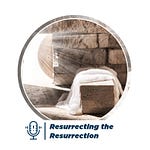
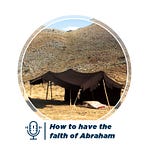
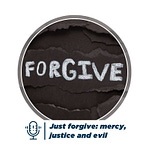

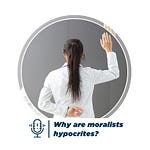

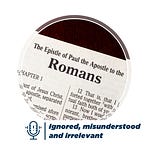
Apprenticeship to Scripture